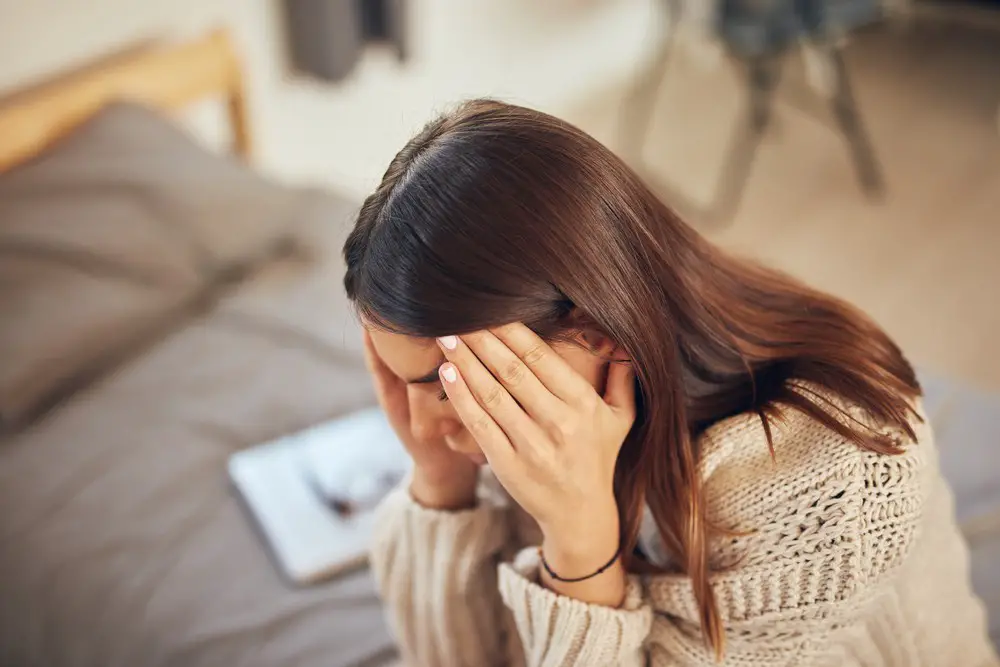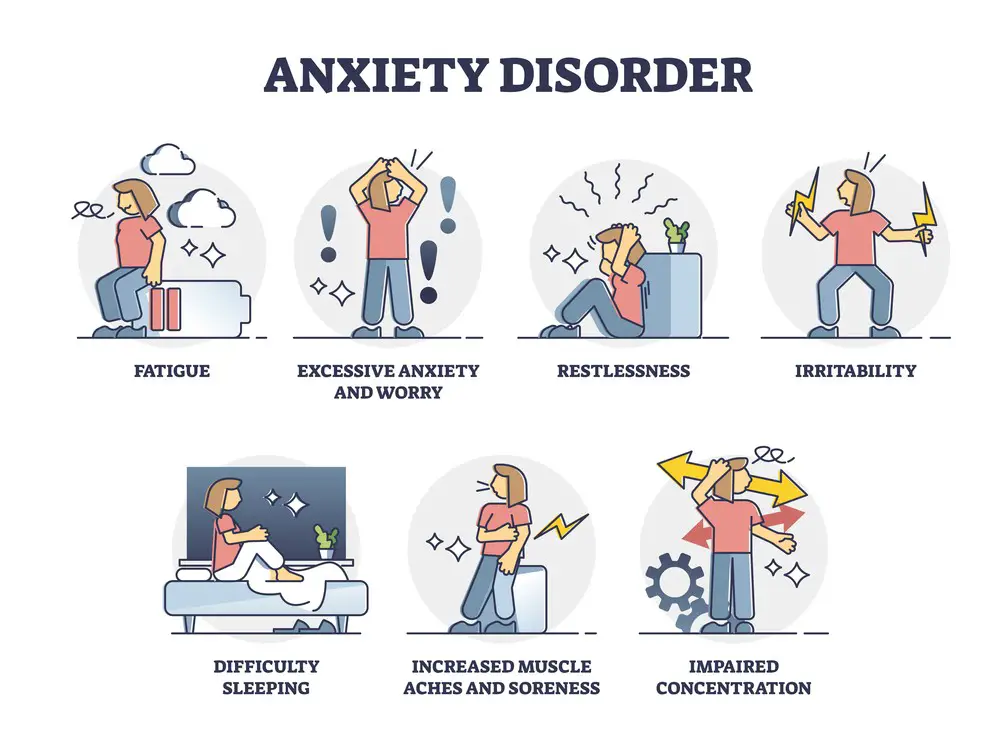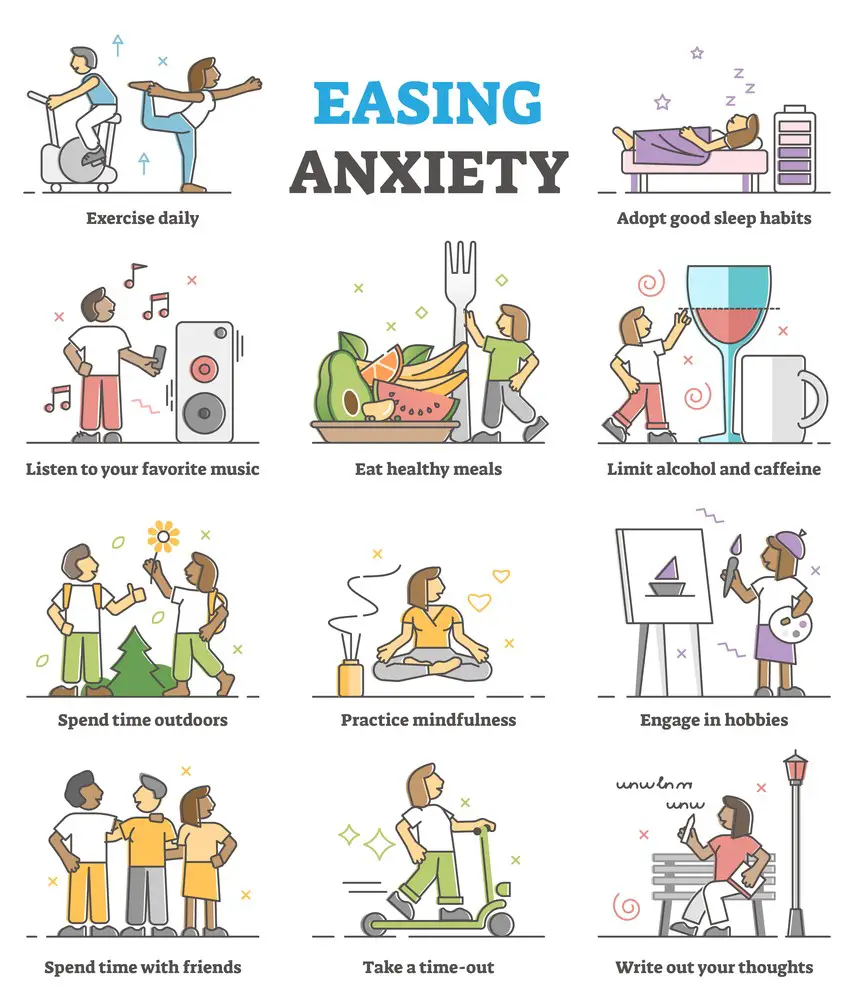As a BetterHelp affiliate, we receive compensation from BetterHelp if you purchase products or services through the links provided
If you’ve been wading through the sea of info on mental health, you might’ve bumped into the question: Can Adderall, a stimulant we often hear about for ADHD, actually help with anxiety? It’s like looking for a Swiss Army knife in your mental health toolkit—wondering if the same gadget that gets your focus razor-sharp can also dial down the hum of anxiety.
Here’s the straight talk: Adderall isn’t your go-to for anxiety relief. It might do the opposite for some folks, cranking up nervousness instead of calming it. But, it’s not all black and white. Let’s break it down:
- Adderall is primarily for ADHD, not anxiety.
- It might reduce anxiety for some, especially if their anxiety is tied to ADHD.
- For others, it can increase anxiety.
- Always chat with a healthcare pro before considering Adderall for anxiety.
So, let’s roll up our sleeves and dive deeper into this mix of brain chemistry, medication, and mental health.
 Understanding Adderall and Anxiety
Understanding Adderall and Anxiety
What Is Adderall?
Before discussing the use of Adderall for anxiety or Attention Deficit Hyperactive Disorder, it’s crucial to understand what Adderall is and its primary uses.
What Adderall is, its components, and its primary uses.
Adderall is a prescription medication composed of amphetamine and dextroamphetamine, two central nervous system stimulants. It is primarily prescribed to treat attention deficit hyperactivity disorder (ADHD) and narcolepsy. Adderall works by affecting certain chemicals in the brain to improve focus, attention, and impulse control.
It’s one of the most prescribed anti-anxiety medication and ADHD medications.
The history and prevalence of Adderall use
Adderall has been in use since the 1990s and has gained popularity for its off-label use as a cognitive enhancer and study aid. It’s abused for its stimulant effects, leading to concerns about its safety and long-term consequences. Adderall helps with anxiety and depression association.
Anxiety and Its Manifestations
Anxiety And Its Various Forms.
Anxiety is a broad term encompassing a range of mental health conditions characterized by excessive worry managing anxiety, fear, panic attacks, and apprehension. Typical forms of anxiety include generalized anxiety disorder (GAD), social anxiety disorder, panic disorder, and specific phobias.
How Anxiety Can Affect An Individual’s Mental And Physical Well-being?
Anxiety can have a profound impact on an individual’s mental and physical health. Symptoms of anxiety may include restlessness, rapid heartbeat, sweating, and intrusive thoughts.
In severe cases, taking medication only worsens anxiety, can interfere with daily life, and lead to depression, sleep disturbances, and physical and mental health disorders and issues.
Using Adderall for Anxiety
The Potential Effects
Now, let’s explore the potential effects of using Adderall for anxiety and its impact on anxiety symptoms.
How Adderall Can Impact Anxiety Symptoms?
Some individuals may report experiencing relief from anxiety symptoms when using Adderall. The stimulant properties of Adderall can increase alertness and focus, which may temporarily reduce feelings of ADHD and anxiety.
However, it is essential to note that these effects are not the same for everyone’s symptoms, and individual responses to experiencing symptoms due to the medication can vary widely.
Potential Benefits and drawbacks of using Adderall for anxiety.
The benefits of taking Adderall and ADHD drugs for anxiety may include increased productivity and improved focus. However, drawbacks and potential risks include addiction, tolerance, side effects, and the risk of exacerbating or causing increased anxiety and symptoms in the long run.
Considerations and Risks
When contemplating using Adderall for anxiety, it is essential to consider the mood effects of various factors and understand the potential risks involved with prescription drugs.
Considerations include the necessity of a proper diagnosis, potential interactions with other medications, and the importance of discussing Adderall use with a healthcare provider. It is crucial to weigh the potential benefits against the risks and explore alternative treatment options.
The use of Adderall for anxiety is associated with several risks and side effects. These may include addiction, withdrawal symptoms, cardiovascular issues, increased blood pressure, and mental health concerns. It is vital to be aware of these potential consequences and consult with a healthcare provider before using Adderall.
 Alternatives and Holistic Approaches
Alternatives and Holistic Approaches
Alternative Treatments
Considering the potential risks of Adderall, it is essential to explore alternative methods for managing anxiety.
Alternative Methods For Managing Anxiety Without Adderall.
Alternative treatments for anxiety may include psychotherapy, such as cognitive-behavioral therapy (CBT), relaxation techniques, exercise, and mindfulness practices. These approaches can be effective in reducing anxiety symptoms without the use of prescription medications.
The Benefits Of Holistic approaches and lifestyle changes.
Holistic approaches, such as adopting a healthy diet, getting regular exercise, and prioritizing self-care, can significantly increase anxiety and contribute to anxiety management. Lifestyle changes can have a positive impact, worsen anxiety, and improve overall mental well-being.

Consulting a Healthcare Professional
The importance of consulting a healthcare provider for anxiety management.
When it comes to managing anxiety, consulting a healthcare provider is crucial. They can provide a proper diagnosis, other psychiatric comorbidities, tricyclic antidepressants, treat and manage anxiety with medication management, offer evidence-based treatment options, and monitor your progress, ensuring that you receive the most effective care.
How to seek professional help for anxiety.
If you are struggling with anxiety and depression association, however, seeking professional help is a crucial step. Guidance and professional support, on finding a mental health professional, scheduling an appointment, and discussing your concerns can empower individuals to take control of their mental health.
 Timing is Everything: Knowing When to Take Medication
Timing is Everything: Knowing When to Take Medication
Deciding when to pop a pill for anxiety can feel like trying to hit a moving target. It’s not just about “if” but “when.” So, how do you nail the timing?
- Listen to Your Body: Start by tuning into your body’s signals. Is your anxiety a constant hum or more like unexpected guest appearances?
- Consistency is Key: If you’re on a daily medication regimen, sticking to a routine helps maintain an even keel.
- Event-Driven Decisions: Got a big presentation or a social event winding you up? Short-acting meds might be your occasional plus-one.
- Follow the Doc’s Orders: This is golden. Your healthcare provider’s advice on timing trumps all.
Remember, with anxiety meds, it’s not about chasing the calm after the storm—it’s about preventing the clouds from gathering in the first place.
 Team-Up Time: Spotting the Signs You Need Therapy
Team-Up Time: Spotting the Signs You Need Therapy
Medication can be a solo artist in your mental health band, but sometimes you must add another member. Therapy can be that backup singer who turns a solo into a harmony. Here’s how to know when it’s time to book that first session:
- Round-the-Clock Worry: If anxiety is like your shadow, following you everywhere, it might be time to bring in a therapist.
- Medication Isn’t a Magic Wand: When meds aren’t giving you the peace you were hoping for, therapy could be the missing puzzle piece.
- Life’s Spinning Wheels: If you’re stuck in the mud and life’s spinning out of control, a therapist can help pull you out.
- The Ripple Effect: When anxiety starts to make waves in your work, relationships, or joy, therapy can help calm the waters.
Combining medication with therapy isn’t admitting defeat; it’s doubling down on your commitment to kick anxiety to the curb.
Setting Sights: Establishing Goals and Monitoring Progress
When it comes to managing anxiety with medication and therapy, setting goals is like planting flags on the mountain you’re climbing. It’s about knowing where you’re headed and being able to look back and see how far you’ve come.
- Craft Clear Goals: Start simple. Maybe it’s feeling less anxious at work or being able to sleep through the night. Clear goals guide the journey.
- Benchmarking Bliss: Set up markers along the way. Celebrate the small victories, like going a day without a panic attack or going through a stressful situation more smoothly.
- Journal Your Journey: Keep a log. Writing down your feelings and experiences can highlight patterns and show progress you might not feel day-to-day.
- Team Check-Ins: Regularly sync up with your healthcare provider and therapist. These check-ins are your progress reports and strategy sessions rolled into one.
Whether you’re taking medication, going to therapy, or both, remember that progress isn’t always a straight line. It’s more like a dance—two steps forward, one step back—and that’s perfectly okay. Keep your eyes on those goals, and let the small successes pave the way to bigger ones.
Conclusion
In conclusion, using Adderall for anxiety is a complex and controversial topic. While some individuals may report temporary relief from anxiety symptoms, it is essential to consider the potential benefits and drawbacks, as well as alternative treatment options.
Making informed decisions about managing anxiety is best done with the guidance of healthcare professionals, who can provide personalized recommendations based on professional medical advice on individual needs and circumstances.
Frequently Asked Questions
Can Adderall effectively reduce anxiety symptoms?
Adderall may temporarily reduce anxiety symptoms for some individuals due to its stimulant properties. However, its effectiveness in triggering anxiety also varies from person to person, and it comes with potential risks and drawbacks. It is essential to consult a healthcare provider to discuss the appropriateness of using Adderall for anxiety.
Are there specific guidelines for using Adderall for anxiety?
No, there are no specific guidelines for using Adderall to treat anxiety. Adderall is not an FDA-approved medication for the treatment of anxiety disorders. The use of Adderall for treating anxiety should be approached with caution and only under the guidance of a qualified healthcare professional. It is crucial to have a proper diagnosis and consider alternative treatments for anxiety, as Adderall comes with potential risks, including addiction, tolerance, and side effects.
Healthcare providers can provide personalized recommendations based on an individual’s specific needs and circumstances, taking into account the potential benefits and drawbacks of using Adderall for anxiety.
It is crucial to consider alternative treatments and potential risks before using Adderall for anxiety.
What exactly is Adderall?
Adderall is a combo of amphetamine and dextroamphetamine, meant to treat ADHD and narcolepsy by boosting focus and control.
Can Adderall be used to treat anxiety?
It’s not what it’s meant for. While some with ADHD find it eases their anxiety, others might find it amps it up.
Why might Adderall make anxiety worse for some people?
As a stimulant, it can rev up your nervous system, potentially leading to increased anxiety for some folks.
Are there any benefits to using Adderall for anxiety?
For those whose anxiety is closely knitted with ADHD, the improved focus Adderall provides could indirectly ease anxiety.
What should I consider before using Adderall for anxiety?
Think about other meds you’re taking, the need for an accurate diagnosis, and a heart-to-heart with your doctor about risks versus benefits.
What are the risks of using Adderall if I have anxiety?
The biggies include the chance of addiction, withdrawal symptoms, a spike in blood pressure, and possibly making your anxiety worse.
Are there alternative treatments for anxiety?
Absolutely. Therapy, especially CBT, relaxation techniques, physical activity, and mindfulness are all solid, drug-free options.
What should I do if I’m considering Adderall for my anxiety?
Talk to a healthcare pro. They’re the GPS for navigating these tricky waters and can help chart the right course for you.
- Left Arm Pain and Anxiety: Understanding the Relationship - November 23, 2023
- Anxiety Paralysis: Coping with Overwhelming Stress - November 23, 2023
- Anxious vs. Nervous: Differentiating Emotions and Responses - November 15, 2023
This site contains affiliate links to products. We will receive a commission for purchases made through these links.


 Understanding Adderall and Anxiety
Understanding Adderall and Anxiety
 Alternatives and Holistic Approaches
Alternatives and Holistic Approaches
 Timing is Everything: Knowing When to Take Medication
Timing is Everything: Knowing When to Take Medication Team-Up Time: Spotting the Signs You Need Therapy
Team-Up Time: Spotting the Signs You Need Therapy

